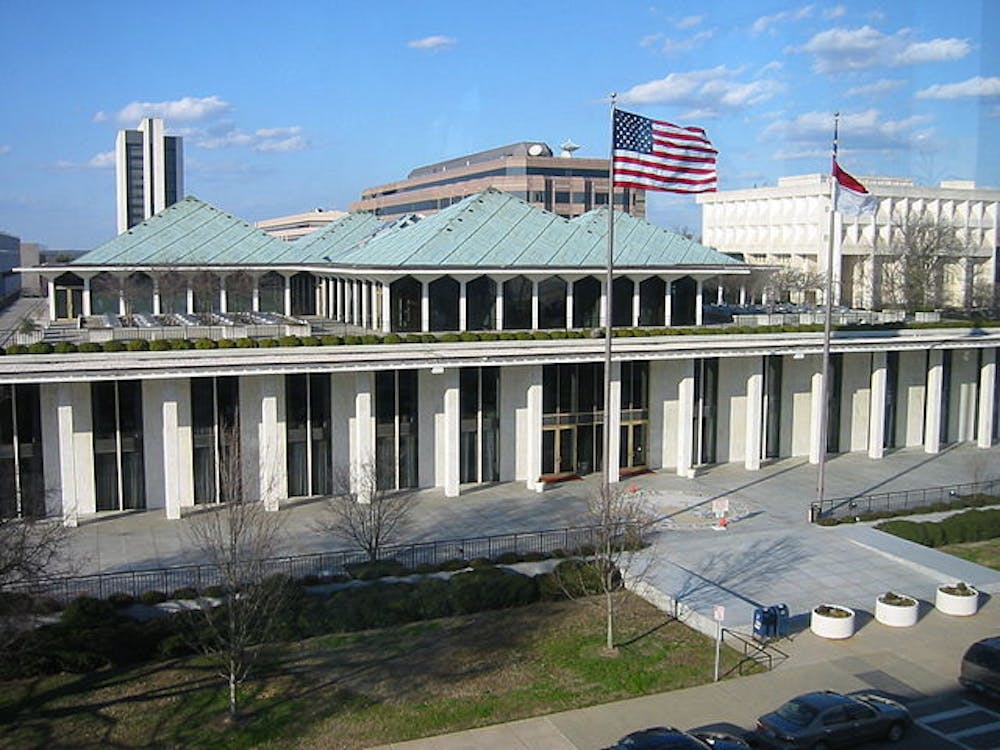A federal judge temporarily blocked portions of a North Carolina elections law on Sunday, preventing changes to the same-day voter registration process from taking effect.
U.S. District Judge Thomas Schroeder sided with the North Carolina Democratic Party, arguing that the changes would have violated voters’ due process rights and result in the throwing out of legitimate ballots.
The blocked parts of the law mandated that the state send only one notice to a listed address to verify same-day voter registration, instead of two. The voter’s ballot would then be canceled if the postcard returned as undeliverable, without notifying the voter.
In his ruling, Schroeder wrote that only having one chance to verify an address by mail would be a “substantial burden on same-day registrants who cast a ballot.” He continued that such registrants would “face a non-trivial risk of being erroneously disenfranchised by failing address verification due to governmental error, rather than factors related to their eligibility to vote, without any notice and opportunity to be heard.”
Most of Senate Bill 747 remains in effect, including the banning of private money for administering elections, removing a three-day grace period for receiving absentee ballots and empowering partisan poll watchers.
“The court order requires relatively minor changes to one small part of the bill, and we are working with our attorneys and the State Board of Elections to ensure that the entire bill is in effect before the primary and general elections this year,” NC House Speaker Tim Moore and state Rep. Grey Mills said in a joint statement. “We will never stop fighting for election integrity on behalf of North Carolina’s voters.”
Democratic Gov. Roy Cooper’s veto of the bill was overridden by Republican state legislatures on Oct. 10. Moments later, the Democratic National Committee and North Carolina Democratic Party filed a lawsuit challenging it.
Proponents of the bill urged the prevention of fraudulent ballots, while Democrats argued that this restriction represented unconstitutional voter suppression. In his veto message, Cooper wrote that the bill had “nothing to do with election security and everything to do with Republicans keeping and gaining power.”
With Schroeder's decision, the State Board of Elections must notify same-day registrants if their ballot is canceled. Schroeder’s order says that legislators must either address the due process issues or not uphold the new rules.
Republicans may still appeal the ruling, but it is likely that the law’s same-day voter registration restrictions will not be in effect for March’s primary election. Same-day registration occurs during in-person early voting, which will run from Feb. 15 to March 2.
Get The Chronicle straight to your inbox
Signup for our weekly newsletter. Cancel at any time.

Madeleine Berger is a Trinity senior and an editor at large of The Chronicle's 119th volume.

